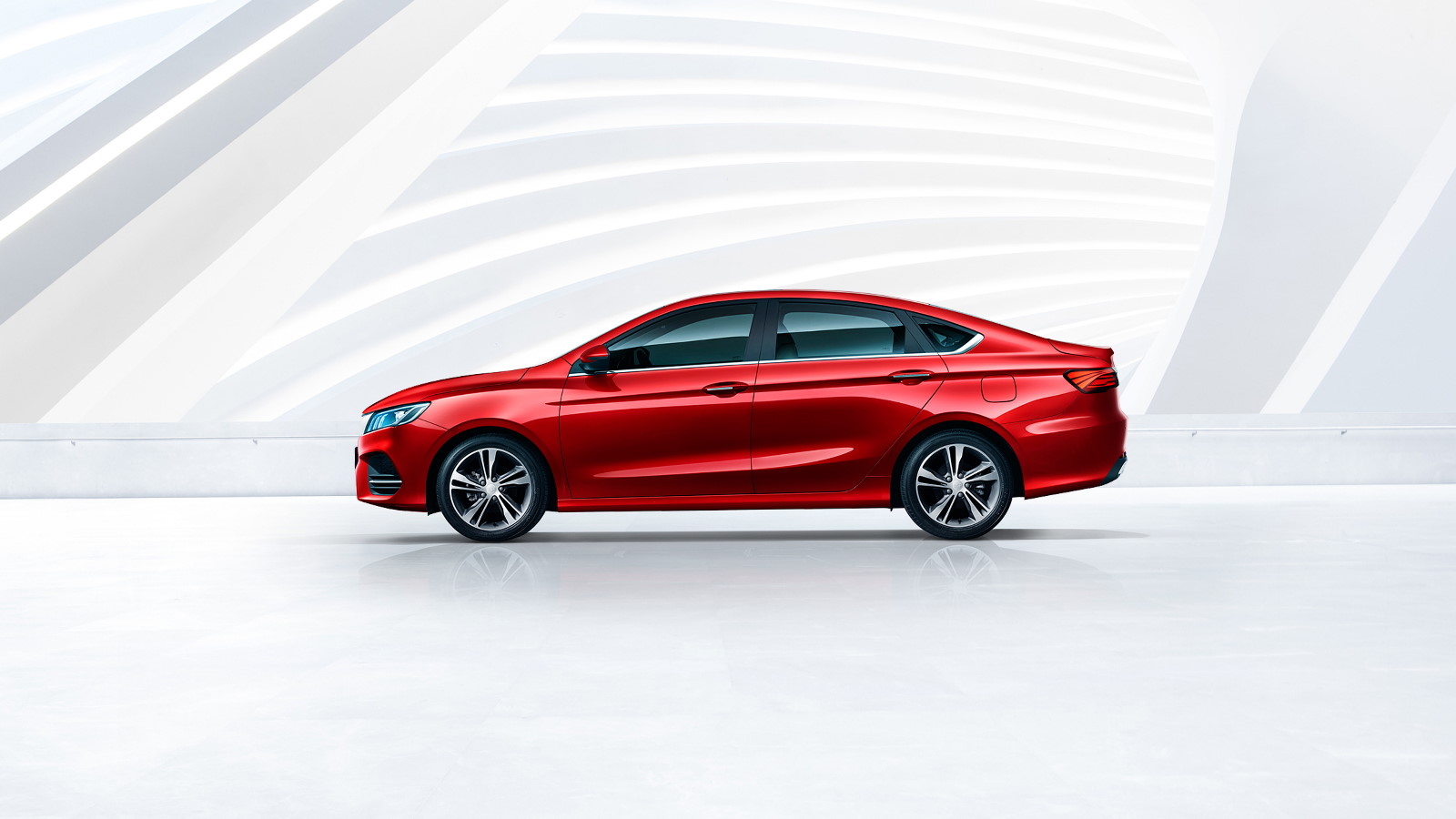How can we make truly future-friendly vehicles? Geely is playing an important part in minimizing its environmental impact wherever possible, including in the materials that are used.
Lessening the burden of industry on the environment starts at a base level and must incorporate all areas of a car’s lifecycle where emissions can be reduced. Here, Geely is making great strides in its ‘trinity product system’, which refers to providing quality, efficiency and reduced environmental impact in the manufacturing of its vehicles.

The 1.0TD engine of the BinRui uses is a mere 3.5L/100km.
Although Geely is leading the way in offering a range of pure electric and hybrid power trains and highly efficient engines such as the Smart Engine 1.0TD – which when powering the Geely Binrui only sips 3.5l/100km – this is just the tip of the iceberg. Materials, while perhaps not so headline-grabbing, still make up an equally important element of Geely’s push towards sustainable development.
With the epidemic subsiding in some areas, but people more conscious than ever of the air they breathe while driving, making the passenger compartment environment as safe as possible is key. Here, Geely comfortably meets the standards for total volatile organic compounds (TVOC) – chemicals such as benzene and aldehydes. This extends to Geely’s suppliers with Geely setting far higher standards for items such as seats, ceilings and carpet. Adhesives used are non-volatile, and on the exterior, paints are water-based.
These efforts have not gone unnoticed. Six of Geely Auto’s models – Borui GE, Xingyue, Jiaji, Binrui, Emgrand and Emgrand GL – have won the Platinum award in the China Eco-Car Evaluation Regulations (C-ECAP). And in 2019, the Lynk & Co 02, Lynk & Co 03, Binyue, Jiaji and Xingyue passed the “Green Design Products” evaluation, awarded by the Ministry of Industry and Information Technology.

Lynk & Co 02
Such accolades are the result of sustained research and development. New material research has focused on three important material properties; materials should have a high level of environmental protection, be lightweight and offer high sensitivity. Geely aims to have a high level of recyclability in its cars and aims to restrict the usage of non-recyclable materials. With the recyclable materials Geely uses, it ensures that they can be put to good, practical use, rather than just being theoretically recyclable.
Reducing weight is important for both traditional internal combustion engine (ICE) cars and new energy vehicles (NEV). For each 100kg of weight reduction, fuel consumption decreases by 0.45l/100km (a NEV will also need less kW/100km), along with a decrease in carbon dioxide emissions of 800-1100g and 92g of other pollutants. Eco-friendly materials such as plant-based fibre components and lightweight materials such as plastic fenders have been used in some models since 2019.

Volvo’s concept XC60 T8 plug-in hybrid showcased the use of sustainable materials.
It’s a vision of a more sustainable future shared across the companies that make up Zhejiang Geely Holding Group. For example, Volvo has committed itself to use a minimum of 25% recycled materials in all plastics on models launched after 2025. To demonstrate this commitment a special version of the XC60 T8 plug-in hybrid was unveiled at the Volvo Ocean Race Gothenburg Stopover in 2018.
The specially built XC60 showed what the right drive and desire can achieve; parts made from recycled materials replaced more than 170 plastic parts weighing 60kg. Inside the cabin, the centre tunnel running between the front seats utilises plastics from discarded fishing nets and maritime ropes. The seats themselves featured two fabrics created out of plastic bottles. Recycled materials also found their way into the engine bay including the sound absorber on the bonnet. This was made from used Volvo car seats – the plastic foam inside was processed and formed into a sound absorbent layer.
“This car demonstrates our commitment to our recycled plastics ambition and how, together with our supply base, we can make it without compromising on quality and design,” said Martina Buchhauser, Senior Vice President, Procurement, speaking at the launch.
Leather has long been associated with seats in luxury cars, but these days the use of leather raises all sorts of sustainability issues, including the impact of raising livestock and the chemicals used in the processing of the material. The new Polestar 2 breaks away from this, as it provides luxury without harming the environment. It boasts a vegan interior: seats feature Weave Tech material similar to that found in dive suits. Not only does this make the seats easy to clean but it can reduce the car’s weight by 7.5kg, a reduction very important for mitigating the weight of the batteries in an EV and improving on-the-road efficiency.

The vegan interior of the Polestar 2.
But Polestar is not going to rest on these laurels, as seen with the new Precept concept which features a high level of recycled content in the interior. For example, the seat covers are 3D-knitted from 100% recycled PET bottles in a single thread, made exactly to size to avoid waste. Working with Bcomp, a company that provides sustainable and lightweight material solutions, Polestar uses flax-based composite materials to replace many formerly plastic components. Not only is flax an environmentally friendly material, but the composite material is also 50% lighter than plastic and, in the Precept, replaces 80% of plastics.
Geely and its partner companies are committed to the green transformation of the automotive industry and are always researching and developing new ways to make cars more future-friendly. The use of sustainable materials in its vehicles is an essential part of this, as the group leads the way with cars that are built, quite literally, of something better.


